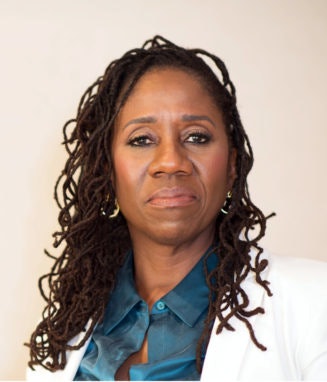[ad_1]
As the world awaits the U.S. Supreme Court’s decision on the constitutionality of affirmative action, the Mellon Foundation, a nonprofit that makes grants related to higher learning, among other areas, recently convened a panel to discuss how America got to this moment and what might come after. The participants were not optimistic.
“To be very clear, the court is overruling affirmative action,” said Melissa Murray, the Frederick I. and Grace Stokes professor at New York University Law School. “You can bet money on it.”
 Stewart Kwoh, co-founder and co-executive director of the Asian American Education Project
Stewart Kwoh, co-founder and co-executive director of the Asian American Education Project
A primary motivation for the anti-affirmative action sentiment is a form of anxiety generated by white supremacy, according to Murray. It’s a fear that some white people have that, because of economic backsliding in the United States, that they’re moving further away from success to which they are entitled. And, the panelists said, that fear has created conditions in which some Asian Americans have allowed themselves to be used to divide minoritized populations along ethnic lines. They broadly agreed that the plaintiffs who are suing Harvard and the University of North Carolina, claiming that their affirmative action policies discriminate against Asian Americans, do not represent the views of that group as a whole.
“Opponents of affirmative action found a small group of Asian Americans to do this wedge work,” said Kwoh, citing a poll that found that 69% of Asian American registered voters support affirmative action.
Kwoh said that it was necessary to do a better job of organizing communities to prevent a feeling of competition between racial groups and discussed the long history of alliance between African and Asian Americans, pointing out that Frederick Douglass was one of the first to speak out for the rights of Chinese immigrants.
 Sherrilyn Ifill, senior fellow at Ford Foundation and former president and director-counsel of the NAACP Legal Defense Fund
Sherrilyn Ifill, senior fellow at Ford Foundation and former president and director-counsel of the NAACP Legal Defense Fund
The panelists also discussed what might come after an anti-affirmative action ruling. Murray believes that such a ruling will only be the beginning of battles about how race can factor into the operations of a school, in areas such as the administration of scholarship money and the hosting of affinity groups.
“What we need to be prepared for is another 20 years of litigation about these other topics,” she said.
Ifill thought that legal action might not even be required.
“I don’t think it will take litigation for the rest of the dominoes to fall,” she said. “I think they are going to start to fall out of fear.”
Ifill argued that the impacts likely wouldn’t be contained to higher education, noting that fewer corporations had signed amicus briefs supporting affirmative action than in previous Supreme Court cases on the subject.
The discussion then shifted towards possible ways forward, with Murray drawing on her experiences as interim dean of the University of California, Berkeley School of Law. Race-conscious admissions have been banned in California since 1997. Murray said that she didn’t feel that the absence of affirmative action removed any stigma from minority students, as some advocates of ending the practice have said would occur. She said that minority students were still looked at as though they didn’t belong.
Murray also found that the ban on considering race made helping minoritized students difficult.
“We managed to do amazing things at Berkeley, but we did so in a posture of complete incapacitation,” she said. “It would have been so much easier and we would have been able to do so much more if we could have thought about race in a conscious, clear-eyed way.”
Murray said that one possible alternative would be for states to implement programs like Texas’s “Top 10% Law,” which guarantees students who graduate in the top 10% of their high school class automatic entry to state schools. Another idea, said Murray, would be for schools to include essays about diversity as students define and experience it as part of applications. But both might be banned as part of a Supreme Court decision for being too close to the consideration of race.
Ultimately, exactly what a post-affirmative action world would look like remains uncertain, but the panelists thought that the impact would be significant.
“I think we are in uncharted territory,” said Ifill. “This decision will not stand alone.”
The Supreme Court is expected to rule on race-conscious admissions by the end of June.
Jon Edelman can be reached at JEdelman@DiverseEducation.com.
[ad_2]


